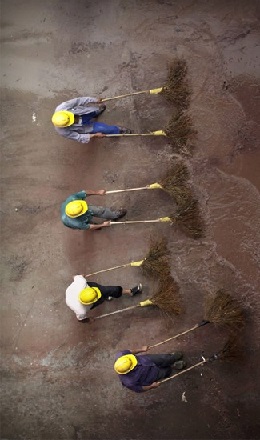Seasonal shift studied
 Research has exposed a decline in the wellbeing of Timorese seasonal workers upon their return home from the Australian Seasonal Workers Programme.
Research has exposed a decline in the wellbeing of Timorese seasonal workers upon their return home from the Australian Seasonal Workers Programme.
A study by Flinders University researchers has been shared at a symposium attended by UN, Timor-Leste, and Australian government representatives this week.
It shows that while in Australia, nearly 87 per cent of Timorese workers reported maintaining their overall wellbeing. However, upon returning home, this figure dropped to a mere 37 per cent.
Lead researcher, Associate Professor Udoy Saikia, says the findings should inform future policies to support migrant workers and their families in Timor-Leste.
“Our findings show an alarming decline in the economic and health wellbeing of Timorese workers when they go back home,” Associate Professor Saikia says.
“Australia and Timor-Leste can use this research to better understand the experiences of seasonal workers after their work stays in Australia are completed.
“The research also identified a decline in their knowledge and skills-related wellbeing,dropping from an impressive 99% while they were in Australia to 63 per cent upon their return to Timor.
“Additionally, the research showed that male migrant workers fared better in maintaining their wellbeing than their female counterparts, both while in Australia and after returning to Timor.
“So it is also not surprising to see the research finding that 83 per cent of Timorese workers expressed an intention to return to Australia for future work.”
The primary factor contributing to this decline, according to the research, is the lack of employment opportunities upon returning to Timor.
Only 20 per cent of returned migrant workers manage to secure employment upon return.
The research, supported by the Department of Foreign Affairs and Trade (DFAT), the Government of Timor-Leste (SEFOPE and Directorate-General for Statistics), and the United Nations Development Programme (UNDP) in Timor-Leste, involved surveys conducted with returned migrants and their households in Timor-Leste, as well as workers currently employed in Australia under the program.
This program allows Australian agricultural and horticultural businesses to hire temporary workers from Pacific Island nations and Timor-Leste for periods of up to 9 months or longer-term roles lasting between one and four years.
Since its establishment in 2008, the Australian Seasonal Workers Programme has seen participation from over 20,000 individuals. This initiative has expanded to include residents from Fiji, Kiribati, Nauru, Papua New Guinea, Samoa, Solomon Islands, Timor-Leste, Tonga, Tuvalu, and Vanuatu.
A total of 750 workers, including those currently engaged in Australia and those who had returned to Timor-Leste, participated in the study.
To provide a comparative analysis, the survey also included Timorese workers who had returned to Timor after working in South Korea under the Korean Permit System.
The complete findings will be published next year.







 Print
Print